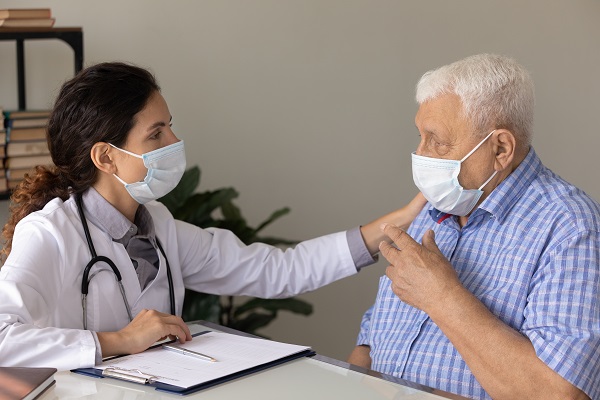What Happens at an Immigration Medical Exam

If you are in the process of migrating to the United States to become a permanent resident, you will need to undergo an immigration medical exam. The appointment, also known as a green card medical exam, is a required component of the procedure to protect public safety and eliminate reasons for inadmissibility for prospective immigrants.
Certain illnesses with significant public health implications render a person ineligible to enter the United States. As a result, the applicant's application for a green card may be denied. The exam is the procedure for removing these inadmissibility reasons. It is important to understand what to expect and how to prepare for your medical test.
Medical history
At the start of the immigration medical exam, the doctor or a member of the doctor's team will know the applicant's medical history. The doctor is particularly interested if they ever been admitted to a hospital or had significant events in their health history, a history of being institutionalized for a chronic physical or mental condition, or a history of being sick or disabled to the point of a "significant deviation from a normal state of well-being or function."
The doctor will also inquire about the person's drug use habits. Applicants who are discovered to be drug addicts or abusers will be denied admission. Recovering drug abusers in remission, on the other hand, are eligible for admission. If the applicant is categorized as a drug abuser or addict, they can apply for permanent residency if substance misuse or addiction is in remission.
Physical examination
After that, the doctor will do a physical examination. The exam entails checking the eyes, ears, nose, and throat, as well as your limbs, heart, lungs, belly, lymph nodes, skin, and external genitalia. To rule out syphilis, the doctor will conduct a chest X-ray and a blood test. In most cases, children will be exempt from the X-ray and blood test requirements. Expectant mothers need to contact their embassy or consulate office to request a delay.
Mental examination
A mental status assessment will also be performed to evaluate the applicant's intellect, thinking, understanding, judgment, affect, mood, and conduct. Applicants with medical or mental illnesses and hazardous conduct linked with such illnesses are ineligible. The grounds for inadmissibility are split into two categories: physical or mental illnesses that have resulted in hazardous conduct and previous medical or mental problems and hazardous conduct that is likely to reoccur or cause other harmful behavior.
Screening of blood and urine
Applicants above the age of fifteen will have a blood test for syphilis and a urine test for gonorrhea. This exam is necessary whether they are in the United States or not. It is essential to remember that applicants must finish the medical checkup despite experiencing a menstrual period.
Final thoughts
If you have your medical exam in the United States, your doctor will record your exam findings on Form I-693 and deliver them to you in a sealed envelope. You should bring this envelope to your green card interview. Under no circumstances should you open the mail before your interview. Please contact us if you have any further questions or concerns regarding the immigration medical exam.
Request an appointment here: https://hoadly.millenniummedicalcare.com or call Millennium Medical Care Manassas at (703) 673-1558 for an appointment in our Manassas office.
Check out what others are saying about our services on Yelp: Immigration Medical Exam in Manassas, VA.
Recent Posts
Struggling with the common cold is something that just about everyone will experience at some point. Yearly bouts with a cold are highly likely, as most people get at least one every 12 months. It is extremely contagious and caused by one of three viruses through close contact. Some people have mild symptoms, but that…
You have almost certainly had the common cold before, like just about everyone else. This illness can be tiring and annoying, but it often does not require much medical attention. A cold will frequently have minor or moderate symptoms and go away on its own. However, sometimes the sickness can progress and cause other problems.…
You may not think the common cold is a serious condition, but it can have some severe effects. Often, the symptoms of a cold are minor and pass in a week or less. You may be able to carry on with normal activities with few interruptions because of a cold. However, there are instances when…
Routine health screenings are a crucial part of any woman's preventive healthcare. Health clinics offer a convenient way for female patients to receive health screenings. These clinics are accessible and work around almost any schedule.Skipping routine appointments like regular women's health screenings can be tempting when life gets busy. However, doing so can be harmful…


